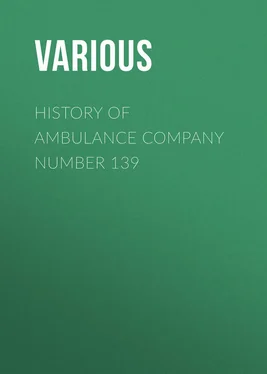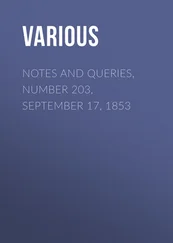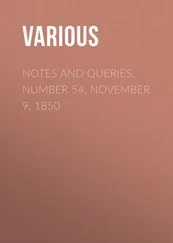Various - History of Ambulance Company Number 139
Здесь есть возможность читать онлайн «Various - History of Ambulance Company Number 139» — ознакомительный отрывок электронной книги совершенно бесплатно, а после прочтения отрывка купить полную версию. В некоторых случаях можно слушать аудио, скачать через торрент в формате fb2 и присутствует краткое содержание. Жанр: Медицина, История, foreign_edu, на английском языке. Описание произведения, (предисловие) а так же отзывы посетителей доступны на портале библиотеки ЛибКат.
- Название:History of Ambulance Company Number 139
- Автор:
- Жанр:
- Год:неизвестен
- ISBN:нет данных
- Рейтинг книги:4 / 5. Голосов: 1
-
Избранное:Добавить в избранное
- Отзывы:
-
Ваша оценка:
- 80
- 1
- 2
- 3
- 4
- 5
History of Ambulance Company Number 139: краткое содержание, описание и аннотация
Предлагаем к чтению аннотацию, описание, краткое содержание или предисловие (зависит от того, что написал сам автор книги «History of Ambulance Company Number 139»). Если вы не нашли необходимую информацию о книге — напишите в комментариях, мы постараемся отыскать её.
History of Ambulance Company Number 139 — читать онлайн ознакомительный отрывок
Ниже представлен текст книги, разбитый по страницам. Система сохранения места последней прочитанной страницы, позволяет с удобством читать онлайн бесплатно книгу «History of Ambulance Company Number 139», без необходимости каждый раз заново искать на чём Вы остановились. Поставьте закладку, и сможете в любой момент перейти на страницу, на которой закончили чтение.
Интервал:
Закладка:
The personnel of our officers changed somewhat at Doniphan. Lt. Adamson soon after getting there, received his honorable discharge. About February 1st, Lt. Tenney was transferred to a Machine Gun Battalion, and Lt. Speck was placed in command of the company. Lt. Paul R. "Daddy" Siberts, Lt. Bret V. Bates, and Lt. Colin C. Vardon were assigned to the company while at Doniphan, the latter in place of Lt. Bondurant, who was transferred to the Casual Company at Camp Doniphan.
With the coming of warmer weather in the early spring, the outside drill turned to hikes, and many is the tale that can be told about the "strategic maneuvers" of the Sanitary Train. Ask any of the man about the night at Buffalo Springs, when J. Pluvius turned the faucet wide open, deluging the tent city. Ask them about "The Lost Sanitary Train," when, in returning from Sulphur Springs, they circled Scott Mountain before they finally bumped into Medicine Lake, and finally arrived back to camp at 3 A. M. But as a rule, the hikes were interesting and instructive, and furnished excellent training. Men who had always depended on Mother for their meals learned how to build a camp fire in the face of a high wind and to cook their dinner of bacon, potatoes and coffee. They learned that a great deal of territory can be covered without the use of a street car or "flivver," and incidentally their muscles became hardened, fitting them for the strenuous work ahead.
From the very first, nothing interested the men more than the thought of a furlough home, and almost as soon as they arrived at Doniphan, the arguments were many as to whether it would be nicer to be home for Thanksgiving or Christmas. But it was not until January that any leaves at all were granted. Then the furloughs were limited to five or seven days, and in that way almost all of the men were able to visit the home folks for a few days before leaving for overseas service. Putting their feet under Mother's table again, and seeing Her for a few days, invariably put the men in a happier and more contented spirit, and they came back to camp with more "pep" for their work.
Tho the days were filled with the routine of drill and company duties, the social side of life at Doniphan must not be forgotten. Not far from camp was the city of Lawton, and while it was far from being an ideal town, it was at least a change from the monotony of camp life. Passes to town were liberal, and the men spent many pleasant evenings there, either at the picture shows or with friends whom they met after going to Doniphan.
The Y. M. C. A. deserves a great deal of credit for its work at Doniphan. "Y" Bldg. No. 59, used by the Sanitary Train and the 110th Engineers, was just a short distance from the train area, and in the evening immediately after Retreat a stream of men could be seen going in that direction. The "Y" furnished paper and envelopes, pen and ink, thus encouraging the men to write home oftener. Movies, at least twice a week, band concerts and boxing bouts were some of the means of entertaining the men, and there was always a full house. On Sundays the men were privileged to attend exceptionally interesting religious services, and the series of addresses given by Chaplain Reeder of the Engineers was well worth hearing.
Almost as soon as the company arrived at Doniphan, rumors filled the air about the Division leaving for overseas service, but nothing substantial developed until about the middle of March. Then orders were received that the Division was booked to leave, and the work preparatory to moving started in earnest. Everything, from the kitchen range to the Pierce-Arrow trucks, had to be prepared for shipment. Lumber was furnished, and the company carpenters were kept busy almost to the day of departure building crates and boxes. After being crated, each article had to be stenciled with the company designation, together with the weight and cubical contents, and the Division Symbol. Packing lists were prepared, which was no small task, and the main work preparatory to leaving was completed.
Not all of the men of the company left Camp Doniphan with the Division, for as is always the case in a large body of men, there were a few who were physically unfit. These men, nine of them, were left at the Casual Camp at Camp Doniphan, and were later assigned to recruiting or military police duty in various parts of the United States.
DEPARTURE FROM CAMP DONIPHAN
The day of May 8th, 1918, dawned bright and fair. The morning was spent in finishing up little odds and ends of work, and in rolling packs. At 1 P. M. "Fall in," the last one at Doniphan, sounded, and soon afterwards the Sanitary Train started its march to the railroad yards. Again it was hot and dusty, just as it had been when the company marched into camp, and it was with a feeling of relief that the troop train came into view. Pullman cars? No, the Sanitary Train couldn't be as fortunate as that, so the men had to be content with chair cars.
With seven months training behind them, the men of Ambulance Company 139 left Camp Doniphan for "Somewhere in France" with great anticipation, feeling that they were ready for any part that they might have to play.
On board the train, which left Doniphan at 3 P. M., the men amused themselves in reading and card games. There were a few details, such as sweeping the cars, kitchen police or serving the meals "de luxe" to the boys, but the old beloved guard detail was not left to the privates. It was graciously wished on the non-coms, who were forced to carry a "45 smoke wagon" on their belts, according to some General Order in the "blue book." We never learned whether they were to keep the boys from getting out or to keep the feminine sex from getting in.
At our first stop, El Reno, Okla., the four ambulance companies, which made up one train, "fell-out" for a little exercise, and after an hour or so of maneuvering, we climbed aboard again to journey nearer the Atlantic. We were by this time consulting time tables, watches and maps to decide over which route we must travel in order to pass through Kansas City, the home of most of the boys in the company. The first night of traveling passed slowly, and as the first tints of dawn were spreading over the eastern sky our train drew into Topeka. Shortly after daybreak the train left the Capitol city of Kansas, and headed down the Kaw Valley towards Kansas City. As the noon hour of May 9th was passing away the train pulled into the big Union Station, where mothers, fathers, wives, brothers, sisters, sweethearts and friends had been waiting for hours, with baskets overflowing with delicious meats, sandwiches, fruits and all the rarest and spiciest that a Mother's effort could put forth.
Again the "blue book" came into play, and we took a little sightseeing trip up Main Street. The bride of a certain Sergeant in the company tried to follow her "hero in hobs" but fell out after the first block. We did an about-face at 12th Street and double-timed back to the folks. After re-entering the coach, we leaned out of the window, pulled the Mother and sweetheart up to us, and for the time being were utterly unconscious of what went on around us or where we were. When the train slowly moved out of the station, we tried to smile as we said "Good-bye," and watched the handkerchiefs still waving when we rounded the corner and were out of sight.
We arrived at St. Louis about 12:30 the next morning, and were switched onto a siding, where we stayed until daybreak, when we continued our journey, crossing Illinois and Indiana. At Huntington, Ind., we again stopped and had setting-up exercises. Upon reaching Peru, Ind., we found Pullman cars awaiting us, and from then on we rode in style. Our next stop was at Salamanca, N. Y., where exercise was again on the program. From there we traveled through some of the most picturesque country of the east.
Читать дальшеИнтервал:
Закладка:
Похожие книги на «History of Ambulance Company Number 139»
Представляем Вашему вниманию похожие книги на «History of Ambulance Company Number 139» списком для выбора. Мы отобрали схожую по названию и смыслу литературу в надежде предоставить читателям больше вариантов отыскать новые, интересные, ещё непрочитанные произведения.
Обсуждение, отзывы о книге «History of Ambulance Company Number 139» и просто собственные мнения читателей. Оставьте ваши комментарии, напишите, что Вы думаете о произведении, его смысле или главных героях. Укажите что конкретно понравилось, а что нет, и почему Вы так считаете.












